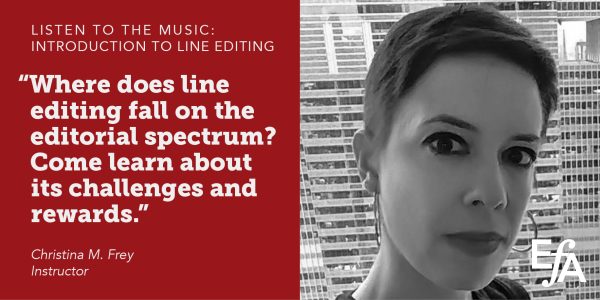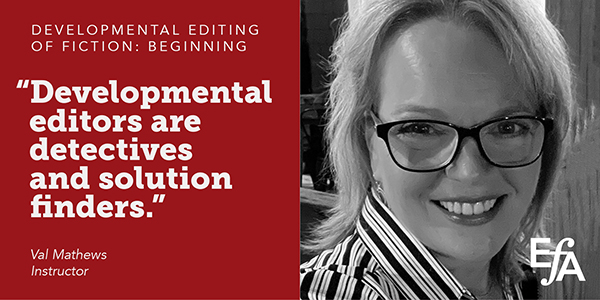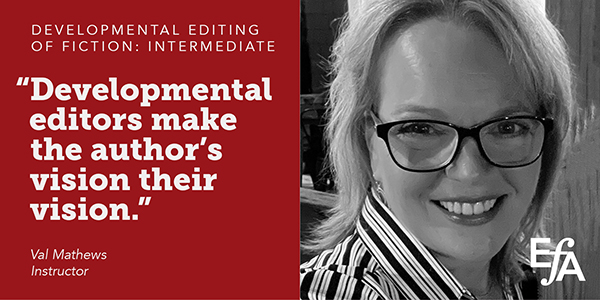Description
Listen to the Music: Introduction to Line Editing
If developmental editing helps shape a story and copyediting polishes it, line editing is what makes the writing come alive. Line editors listen to the music behind the written word. This webinar will challenge developmental editors and copyeditors to approach editing from the middle distance, connecting with the writing while detaching from the big picture or the small cleanup issues. We’ll talk about authorial voice, discuss how to work with writing on a line level, and work through a few examples comparing line editing to other editorial phases.
Six-week traditional course, beginning September 4: Line Editing of Commercial Fiction: Beginning
Line editing is the bridge that connects the grand architecture of storytelling with the intricate details of language mechanics, offering writers a holistic approach to enhancing their most important feature: their voice. In this six-week introduction course to line editing, we’ll cover everything you’ll need to work professionally with market-bound authors.
Developmental Editing of Fiction: Beginning
Developmental editors (DEs) are all about the big picture. They assess how a manuscript hangs together as a whole, how a story moves and unfurls, how characters drive the story forward. And above all, DEs are the author’s collaborating partner—they hone the writer’s unique voice and make the author’s vision their vision. This self-paced introductory course is meant for anyone who wants to help authors shape their stories, develop their storytelling grit, and conquer the boring in their manuscripts. It covers what every DE needs to know to start working in the industry.
Four-week traditional course, beginning August 7: Developmental Editing of Fiction: Intermediate
If you have experience in fiction developmental editing (or if you’ve completed “Developmental Editing of Fiction: Beginning”), this four-week class will take your skills to the next level. We’ll expand on the fundamentals of developmental editing, including structure, beats, pacing, and character development; address legal and ethical issues in character development; and talk about how to manage developmental edits for authors at various levels of ability.
Working with Indie Authors
With an author-centric approach, this workshop-style course gives you context by showing you where you are in the industry, helps you develop a marketing strategy to target the indie authors you want to work with, and guides you through developing tools that allow you to communicate effectively with prospective clients, pitch your services, and ensure your clients are on the same page as you.








